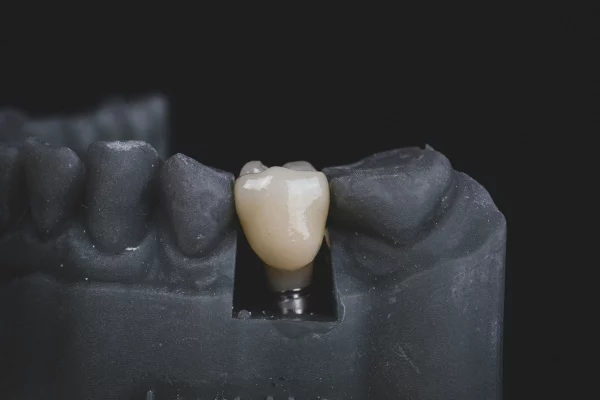Dental implants offer a reliable solution for restoring both the aesthetics and function of one’s smile; however, their long-term success is contingent upon diligent care and maintenance. Comparable to natural dentition, dental implants necessitate daily oral hygiene practices, routine dental evaluations, and a lifestyle conducive to overall oral health. Neglecting these responsibilities can result in adverse outcomes, such as peri-implant disease or implant failure. This article will provide a comprehensive overview of strategies for maintaining implant health, including evidence-based cleaning techniques, anticipated costs, and recommendations for professional care.
Dental Implant Care Basics: What Every Patient Should Know

Dental implants are constructed from durable, biocompatible materials such as titanium or zirconia, designed to provide long-term stability and function. Yet, even with these advanced materials, implants are not entirely maintenance-free. Neglecting oral hygiene or failing to attend regular dental appointments can compromise the health of the surrounding gum tissue and bone, increasing the risk of implant failure. In essence, maintaining a dental implant is akin to safeguarding a significant investment; consistent daily care and routine professional evaluations are essential to ensure its longevity and optimal performance.
Daily Cleaning Techniques for Dental Implants
Caring for a dental implant is similar to caring for natural teeth, but with a few key differences. Here’s what your daily routine should include:
- Brush twice a day with a soft-bristle toothbrush, focusing on the gumline around the implant.
- Floss daily, using implant-safe floss or tools like interdental brushes or a water flosser.
- Use low-abrasive toothpaste, free from harsh particles that could scratch the implant surface.
- Rinse with an alcohol-free mouthwash to keep bacteria in check.
It only takes a few minutes a day, but consistency is what makes the difference in long-term health.
Recommended Dental Products for Implant Care
To maintain the cleanliness of dental implants and promote healthy gums, it is advisable to use a nylon-bristled toothbrush, whether manual or electric. Specialized floss, such as super floss or implant-specific floss threaders, can assist in effectively cleaning around implants. Additionally, water flossers are beneficial for accessing areas that are difficult to reach with traditional brushing and flossing methods.
When selecting toothpaste, opt for a non-abrasive formula containing fluoride to prevent damage to implant surfaces and support oral health. If recommended by your dental professional, a chlorhexidine mouth rinse may also be incorporated into your oral hygiene routine. It is important to avoid using metal tools or hard-bristled brushes, as these can cause trauma to the soft tissue surrounding the implant and potentially compromise the integrity of the implant site.
Avoiding Common Implant Maintenance Mistakes
Even with the best intentions, errors remain surprisingly common when maintaining dental implants.
Some individuals neglect flossing, mistakenly believing implants are immune to complications like cavities; in reality, peri-implant gum infections remain a significant risk. The use of overly abrasive whitening toothpastes is another misstep, as these products can damage the surfaces around an implant. Bleeding or tenderness near the implant should never be ignored; such symptoms may indicate developing issues that warrant professional attention. The use of tobacco products is particularly problematic, as it impairs healing and substantially increases the risk of implant failure.
When uncertain about suitable oral hygiene practices or products, it is prudent to consult your dental provider for guidance tailored to your specific needs.
How Much Do Dental Implants Cost to Maintain Annually?

Following dental implant placement, ongoing maintenance is essential for ensuring the longevity and function of the implant. This involves attending regular professional cleanings, clinical examinations, and, when indicated, radiographic assessments to evaluate the condition of surrounding bone and gum tissue. Proactive care remains relatively cost-effective, especially in comparison to the significant expenses associated with implant replacement due to failure. Ultimately, consistent preventive measures help preserve the implant’s health, appearance, and functionality for many years.
Typical Follow-Up Appointment Costs
Most implant patients require checkups every 6 months, though some may need quarterly visits. These exams often include:
- A clinical evaluation of the implant and surrounding gum tissue
- Professional cleaning around the implant
- X-rays (as needed) to monitor bone levels
Expect to pay $100–$300 per visit, depending on your location and the clinic’s pricing. Some patients may be eligible for bundled or loyalty-based packages that reduce costs.
When Additional Treatments May Be Needed
If you notice symptoms like gum inflammation (clinically referred to as peri-implant mucositis) or even bone loss (peri-implantitis), additional intervention is generally required. Management strategies may include professional deep cleaning and decontamination, laser therapy, localized antibiotic applications, or, in advanced cases, surgical procedures. Addressing these conditions promptly is crucial, as early intervention can help prevent more severe complications and significantly higher treatment costs later.
Insurance Coverage for Implant Maintenance
Dental insurance coverage can be inconsistent, particularly regarding implant procedures. While most standard plans will typically cover preventive care such as routine cleanings and examinations they may exclude the actual implant placement. Higher-tier insurance policies may offer additional benefits, including implant-specific cleanings, diagnostic imaging (like X-rays), or deep cleanings if deemed medically necessary.
To obtain precise information, it is advisable to contact your insurance provider directly and request clarification regarding the specifics of your annual dental benefits. This approach helps ensure you fully understand which services are included under your plan.
Dental Implants and Dentures: Caring for Both
For individuals utilizing implant-supported dentures—such as All-on-4 systems or removable overdentures—maintenance requires additional attention beyond standard oral hygiene. Thorough daily cleaning of the prosthesis, both internally and externally, is essential to minimize plaque accumulation around the implant abutments. Specialized tools, including water flossers, interdental brushes, or non-metal picks, may be necessary to effectively clean beneath the denture and surrounding the implant sites. Routine dental examinations are critical, as they allow for early detection of loosening, prosthetic wear, or peri-implant inflammation. Adhering to these care protocols significantly contributes to the long-term stability, comfort, and function of implant-retained restorations.
Differences in Maintenance Requirements
Unlike single implants, implant-supported dentures involve multiple points of contact with your gums and jaw. These areas need special attention to prevent inflammation and wear. Fixed dentures are brushed like natural teeth, while removable ones should be taken out and cleaned thoroughly. Your dentist will show you how to care for your unique restoration and recommend specific cleaning tools.
How to Clean Implant-Supported Dentures
For removable implant dentures:
- Remove and rinse after meals to eliminate food particles
- Brush gently with a denture brush using non-abrasive cleaner
- Clean the implant attachments inside your mouth with a soft brush or swab
- Soak the denture overnight in a cleaning solution unless advised otherwise
Fixed dentures can be brushed like regular teeth, with floss threaders or water flossers used underneath the prosthetic to remove trapped debris.
Signs of Problems to Watch For
It’s important to monitor any unusual changes in your mouth if you have dental implants. Persistent halitosis or an unpleasant taste—particularly when accompanied by bleeding near the implant—may suggest an early infection. More severe symptoms, such as pain when chewing, instability of dentures, or visible pus or discharge at the implant site, are cause for greater concern. These signs could indicate peri-implantitis, which is inflammation around the implant, or even possible implant failure. If you observe any of these warning signs, you should promptly consult your dentist or implant specialist for a comprehensive evaluation and timely intervention.
Dental Implants Near Me: Choosing a Clinic for Ongoing Care
Selecting an appropriate dental provider extends far beyond the procedure itself—it’s an investment in the long-term success and health of your implant. A clinician’s expertise, access to advanced technology, and commitment to thorough follow-up care all play critical roles in ensuring implant longevity. Regular assessments, professional maintenance, and tailored guidance are essential for identifying potential complications before they become serious concerns. Ultimately, entrusting your care to a skilled and attentive provider supports the stability, function, and appearance of your dental implant over time.
Importance of Regular Checkups at G&P Dental
At G&P Dental, we monitor your implants with precision and care. During your visits, our experienced team:
- Checks for inflammation or gum recession
- Measures pocket depths to detect early bone loss
- Assesses the function and fit of your implant or denture
- Updates you on personalized care instructions
We use digital imaging and laser diagnostics to catch subtle changes that aren’t visible to the naked eye.
What to Expect During Implant Maintenance Visits
During your visit, the clinician will typically begin by reviewing both your medical and dental history, as this information is essential for comprehensive care. A detailed cleaning will be performed around the dental implant to maintain peri-implant tissue health. Assessment of the surrounding soft tissues is also standard, ensuring that any signs of inflammation or abnormality are promptly identified. If there are concerns regarding bone stability, radiographic imaging may be recommended to evaluate bone levels adjacent to the implant. Additionally, practitioners often provide updated home care instructions tailored to your specific needs.
These routine appointments play a critical role in preventing complications, thereby promoting the long-term success and comfort of your dental implant.
Emergency Exams for Implant Complications
Persistent discomfort, instability of a dental implant, or ongoing bleeding should not be disregarded, as these symptoms may signal infection, implant failure, or other complications. Immediate clinical attention is warranted in such cases. At G&P Dental, patients have access to prompt emergency assessments and same-day intervention for implant-related concerns. Early evaluation and management are critical, as timely intervention substantially enhances the likelihood of preserving the implant and minimizing the need for more invasive procedures.
Preventing Implant Failure: Tips from Dental Experts
Dental implants represent a significant advancement in restorative dentistry, yet their long-term viability is not guaranteed without proper maintenance. Neglecting fundamental oral hygiene practices, failing to attend scheduled dental evaluations, engaging in smoking, or exhibiting parafunctional habits such as bruxism can substantially elevate the likelihood of implant failure. Consistent and thorough cleaning, adherence to regular professional checkups, and avoidance of detrimental behaviors are essential for optimizing implant longevity. When patients approach implant care with diligence comparable to, or exceeding, that devoted to their natural dentition, these restorations have the potential to remain functional and reliable for many years.
Lifestyle Habits That Affect Implant Health
The longevity of your dental implant is significantly influenced by your daily habits. Smoking and tobacco use should be discontinued, as they are well-documented to hinder healing and elevate the risk of complications. Alcohol consumption is best minimized for similar reasons. Regular physical activity is recommended, since inadequate circulation can impede recovery and integration of the implant.
Nutritional choices are also important; a balanced diet supports immune function, which is critical for oral health. Adhering to your dentist’s hygiene guidance is essential—proper care reduces the likelihood of infection and other issues. It is worth noting that even a single unhealthy behavior, such as nighttime teeth grinding, can place excessive stress on the implant and compromise its long-term success. Preventive measures, like using a mouthguard, may be advisable in such cases.
How Smoking and Diet Impact Implants
Nicotine restricts blood flow to the gums, making it harder for your body to heal after implant placement. This increases the chance of infection and delayed integration. A diet high in processed sugars may also contribute to gum inflammation and plaque buildup. Focus on foods rich in vitamins C and D, calcium, and omega-3 fatty acids to support bone and tissue health.
Early Signs of Implant Problems and When to Act
Be attentive to indicators such as swelling, redness, or localized tenderness, as these may signal underlying issues. Bleeding during brushing should not be dismissed. Increased mobility or noticeable shifting of the implant or crown merits concern. Any visible threads on the implant suggest exposure that requires professional evaluation. Additionally, a persistent unpleasant taste or odor at the site is noteworthy.
Prompt action is essential. Do not delay—schedule a dental appointment at the earliest sign of these symptoms rather than waiting for them to resolve spontaneously.
Frequently Asked Questions (FAQs)
1. How often should I visit the dentist for implant checkups?
Most implant patients should schedule checkups every 6 months. If you have a history of gum disease or wear implant-supported dentures, your dentist may recommend visits every 3–4 months. These appointments allow your provider to catch early signs of inflammation or bone loss and adjust your care plan accordingly.
2. What products are safe to use on dental implants?
Use soft-bristled toothbrushes, non-abrasive fluoride toothpaste, and alcohol-free mouthwash. Water flossers and floss threaders can help reach around the implant. Avoid products labeled for whitening or tartar control unless specifically approved by your dentist, as they may contain abrasive agents that harm implants.
3. Can dental implants get cavities or infections?
Implants themselves can’t develop cavities, but the surrounding gum tissue can become infected (known as peri-implantitis). This condition mimics gum disease and can lead to bone loss if untreated. Proper hygiene and routine care are essential to prevent bacterial buildup that leads to infection.
4. How long do dental implants typically last?
With good care, dental implants can last 20 years or more. Many patients enjoy a lifetime of stability with their implants. Longevity depends on factors like bone quality, oral hygiene, and lifestyle habits. Regular dental visits are key to ensuring long-term success.
5. What are the signs that an implant needs repair?
Common signs include looseness, pain, bleeding gums, or visible wear on the crown. In some cases, only the crown or abutment needs repair—not the implant itself. If you notice changes in bite, sound, or comfort, have your implant evaluated promptly to avoid more serious damage.
Dental implants are built to last—but only with your help. Schedule your dental implant maintenance visit at G&P Dental today and give your investment the care it deserves.
Our team is here to guide you every step of the way, from daily hygiene to advanced diagnostics. Whether it’s your first checkup or you’re managing multiple implants, we’re ready to provide the expert care your smile depends on. Call now or book online to protect your dental health for years to come.


